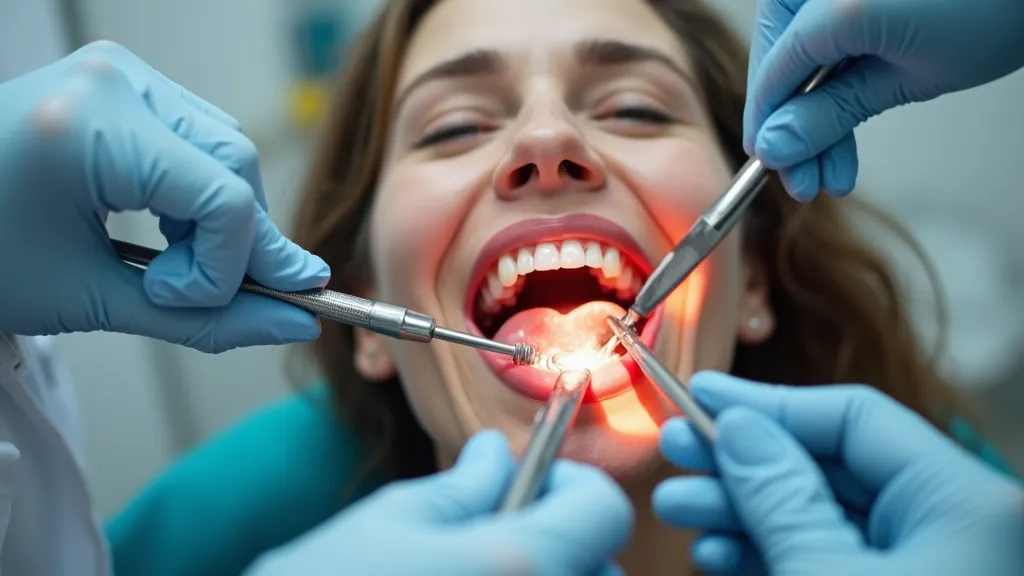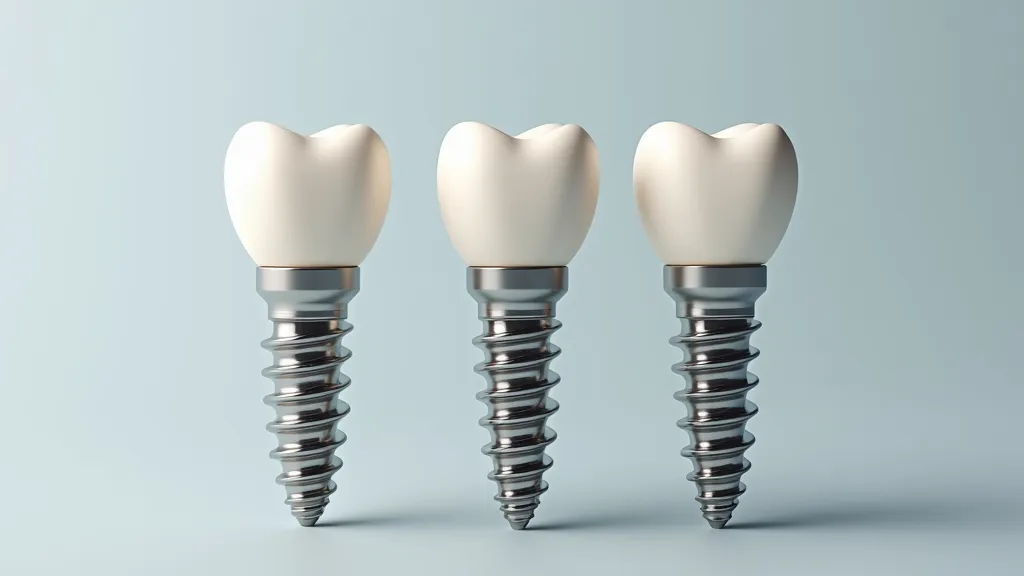Good Dental Implants for Seniors
This guide delves into "Good Dental Implants for Seniors," offering an insightful overview of available options. Dental implants provide a long-lasting solution for tooth loss, popularly chosen by seniors for their durability and natural appearance. Understanding costs, procedures, and the benefits can empower seniors to make informed decisions about their oral health.

Understanding Good Dental Implants for Seniors
The search for reliable dental health solutions becomes crucial as individuals age, addressing issues like tooth loss that impact quality of life. Good dental implants are increasingly popular among seniors, as they offer a robust solution that mimics natural teeth both functionally and aesthetically. This guide explores the benefits, costs, and process of getting dental implants tailored specifically for seniors.
Benefits of Dental Implants for Seniors
Dental implants serve as a good fixture in the quest for improved oral health, particularly among seniors who are very affected by tooth loss due to aging. These implants provide several advantages over traditional dentures:
- Stability and Comfort: Unlike conventional dentures, implants offer stability that prevents movement during everyday activities like eating and speaking. This stability not only enhances comfort but also allows seniors to enjoy a wider variety of foods without the fear of their denture slipping or causing embarrassment.
- Durability: Made from high-quality materials such as titanium, which is biocompatible and resistant to decay, implants can last a lifetime with proper care. This durability eliminates the need for frequent replacements, making implants a long-term financial investment.
- Functionality and Aesthetics: Implants closely mimic the function and appearance of natural teeth, preserving facial structure and boosting self-confidence. With implants, seniors can smile without hesitation, enhancing their social interactions and overall self-esteem.
- Improved Oral Health: Dental implants allow for easier access to surrounding teeth, promoting better oral hygiene. With no risk of cavities in the implant itself, seniors can maintain better overall dental health.
- Prevention of Bone Loss: The implant process stimulates the jawbone, which can help prevent the bone loss that typically occurs after tooth loss. This is particularly crucial for seniors, as bone loss can lead to further dental complications and even affect the facial structure.
Understanding the Costs
The cost of dental implants can vary significantly based on a range of factors, including location, specific procedures involved, and the expertise of the dental professional. In English-speaking countries, individual implant costs are as follows:
| Country | Currency | Price Range |
|---|---|---|
| United States | USD | $3,000 - $6,000 |
| United Kingdom | GBP | £2,000 - £2,500 |
| Australia | AUD | AU$3,500 - AU$6,500 |
| Canada | CAD | CA$3,000 - CA$5,500 |
It is essential to note that these prices usually do not cover additional procedures like bone grafting or sinus lifts, which may be necessary depending on the condition of the patient's jawbone. Therefore, understanding the total cost involves not just the implant itself, but also any preparatory procedures that may enhance the success of the implantation.
Accessing Affordable Options
To ensure cost-effectiveness while not compromising on quality, seniors can explore several options:
- Dental Insurance: Companies like ADHP assist in finding appropriate dental coverage to mitigate expenses. Many insurance plans now offer varying levels of coverage for dental implants, so it’s vital for patients to understand their policies.
- Dental Clinics & Tourism: Clinics such as Atlantic Dental Group offer comprehensive services at reduced rates. Additionally, DentaVacation provides opportunities to save through dental tourism, where seniors can receive high-quality dental care in different countries at a fraction of the cost.
- Payment Plans: Many dental specialists offer financing options that allow patients to pay off their dental implants over time. This can ease the financial burden, making it easier for seniors to access the necessary care.
- Community Health Programs: Some community health organizations offer dental implant services at lower costs for seniors. Researching local clinics or health departments for available assistance might yield beneficial results.
- Online Resources: Websites like Dental Views furnish detailed insights into low-cost implant solutions, providing valuable information on clinics and practitioners known for their affordability without sacrificing quality.
Procedure Overview
The dental implant process is a multi-step procedure that may span several months. Understanding this process can help demystify what seniors will experience:
- Initial Consultation: Assessment of oral health by the dental professional to determine suitability for implants. This includes X-rays and possibly a 3D scan of the jawbone to assess bone density and structure.
- Implant Placement: The surgical procedure where a titanium post is inserted into the jawbone, acting as a root for the new tooth. Local anesthesia is often used, ensuring comfort during the procedure.
- Osseointegration: A healing period lasting several months, allowing the jawbone to naturally integrate with the implant. This process is crucial for providing long-lasting stability and strength to the implant.
- Abutment Placement: After osseointegration, an abutment (a small connector) is attached to the implant. This component serves to support the crown securely.
- Crown Placement: Finally, a custom-made prosthetic tooth, or crown, is affixed onto the abutment, completing the implant process. This crown is crafted to match the appearance of the existing teeth, ensuring a natural look.
- Follow-Up Care: Post-procedure, regular follow-ups with the dentist are essential to monitor healing and ensure the implant's success. Follow-up care can also include professional cleanings and adjustments to the crown.
FAQs
- Q: Are dental implants a viable option for all seniors?
A: Many seniors are good candidates for dental implants. However, adequate bone density and good overall health are crucial for successful outcomes. In some cases, seniors may require bone grafting to build up the jawbone before implants can be placed. - Q: Do implants require special maintenance?
A: Just like natural teeth, implants require regular brushing, flossing, and dental check-ups to ensure their longevity. Good oral hygiene practices, including the use of antibacterial mouth rinses, can help maintain implant health. - Q: How long does the entire implant process take?
A: The implant process can take several months, depending on individual healing time and specific procedural steps. For some, the entire journey from consultation to crown placement may last anywhere from 6 to 12 months. - Q: What are the risks associated with dental implants?
A: As with any surgical procedure, there are risks involved, such as infection, nerve damage, and implant failure. However, when performed by a qualified professional and with proper aftercare, these risks are minimized. - Q: Can dental implants be placed immediately after tooth extraction?
A: In some cases, implants can be placed at the same time as tooth extraction, known as immediate implant placement, but this depends on the condition of the bone and other factors. Your dentist will evaluate your specific situation before making recommendations.
Conclusion
Good dental implants represent a significant enhancement in dental health for seniors, promising not just functional improvements but also an uplift in confidence and lifestyle quality. By understanding costs and procedures, seniors can embark on their dental restoration journey with confidence. Dental implants provide a pathway to reclaiming one’s smile, eating preferences, and social life, making them an invaluable investment in both health and happiness.
Long-Term Care for Dental Implants
Once dental implants are successfully placed, it is crucial for seniors to maintain a regimen of good long-term care to ensure their durability and functionality. Here are some tips:
- Daily Oral Hygiene: Brushing and flossing diligently is essential. Using a soft-bristled toothbrush and non-abrasive toothpaste helps maintain crown integrity, while specialized floss for implants can ensure that plaque is adequately removed from around the abutment.
- Regular Dental Check-ups: Scheduling regular visits to the dentist for professional cleanings and examinations can help catch any potential issues early and maintain overall oral health.
- Avoiding Certain Foods: While dental implants can restore function, seniors should still be cautious with hard or sticky foods that might place undue stress on the implant or dislodge the crown. Consulting with a dentist for a list of foods to avoid is wise.
- Quit Smoking: If relevant, seniors who smoke should consider quitting, as smoking can significantly affect the healing and success rate of dental implants. Various resources and support groups are available to assist in smoking cessation.
Managing Expectations
It is essential for seniors to have realistic expectations about their dental implant journey. While the results can be life-changing, the process may require patience and commitment. Understanding the healing times, potential for discomfort, and lifestyle adjustments can prepare seniors for a successful transition into life with dental implants.
Support Systems
The journey to obtaining dental implants can feel overwhelming, and having a strong support system can make a significant difference. Friends and family can offer emotional support, and assistance with post-operative care such as transportation to appointments can be invaluable. Group discussions with peers who have undergone similar experiences can also provide insights and reassurance.
The Future of Dental Implants
The field of dental implants is continually evolving, with ongoing research focused on improving procedures, materials, and success rates. Innovations such as mini dental implants and guided implant placement techniques are making the process even less invasive and more accessible for seniors. Staying informed about advances in dental technology can help seniors make knowledgeable decisions about their oral health care options.
Disclaimer: The above information comes from online resources, and the data is as of October 2023. Dental implant prices and procedures are for reference only and may vary by region, clinic, and doctor.
For further details and insights on dental implant options, visit the following sources: [Dental Views](https://dentalviews.com/low-cost-dental-implants/), [Atlantic Dental Group](https://www.atlanticdentalgrp.com/), [DentaVacation](https://www.dentavacation.com/), [ADHP](https://rockvilledentalarts.com/en/).










